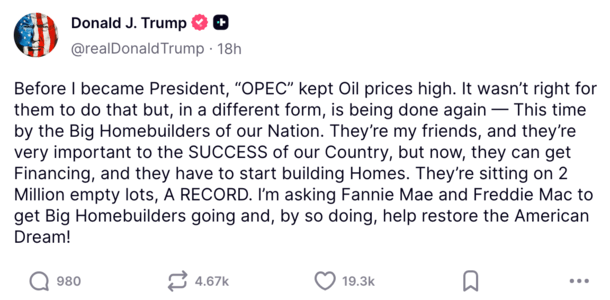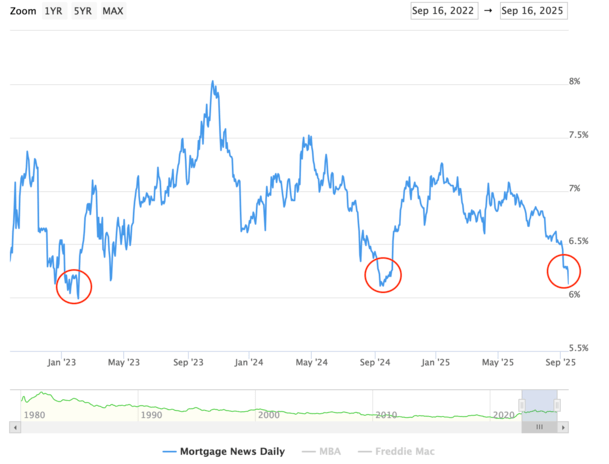Court's delay in Cook case hints at unique thinking for Fed
unitedbrokersinc_m7cmpd2025-10-07T13:22:57+00:00Key Insight: In other challenges involving removals at independent agencies, the Supreme Court has allowed dismissals to stand while litigation is ongoing. However, Cook's case appears to be different, suggesting to some that the court is treading more carefully in its decision-making.Expert Quote: "The court's decision to allow her to continue serving — for now — increases my confidence that it will ultimately rule in her favor on the merits." — Jeremy Kress, University of Michigan Ross School of BusinessWhat's at stake: Market watchers have echoed concerns that removing Federal Reserve Governor Lisa Cook before the merits of her litigation are ruled on could cause disarray in financial markets.The Supreme Court's decision to delay ruling on Federal Reserve Gov. Lisa Cook's case until early next year is being viewed by some legal experts as a potential positive sign for the central bank's independence.In an order published Oct. 1, the court said the case is "deferred pending oral argument in January 2026." The move came after President Donald Trump, through his legal team, filed an emergency application asking the court to lift restrictions that prevent him from removing Cook while the merits of her actual case proceed.In other recent cases involving the removal of leaders of independent agencies, the Court allowed the dismissals to stand during ongoing litigation. But some legal scholars and market observers say the court's refusal to act quickly in Cook's case may signal it views the Federal Reserve differently and is treading more carefully.As a result of the court's order, Cook retains her voting role on the Federal Open Market Committee, at least for the time being.Jeremy Kress, an associate professor of business law at the University of Michigan, called the order "notable," suggesting it reflects a possible distinction in how the justices view the Fed compared to other agencies.He pointed to recent cases involving the Federal Trade Commission and the National Labor Relations Board, in which the court barred Democratic appointees from continuing to serve while they challenged their removals."Apparently, the court believes the Fed is different," Kress said. "The court's decision to allow her to continue serving — for now — increases my confidence that it will ultimately rule in her favor on the merits."Jane Manners, a law professor at Fordham University, echoed that view, saying the order could be read "as a sign that the court views the Fed as meaningfully different from other independent agencies."Still, Kress urged caution in overinterpreting the court's action."Until the court explains its rationale for why the Fed should be treated differently from the FTC or NLRB, it's impossible to know how much control it thinks the president has over the administrative state," he said. "So Fed independence will remain very much in jeopardy — at least until January."Peter Conti-Brown, associate professor of financial regulation at the University of Pennsylvania, questioned whether the procedural order has a greater meaning, noting that he is "not reading too much into [it]."The January hearing will not be a full review of Cook's legal challenge against the president, but rather will focus on whether to uphold a lower court injunction that has so far blocked her removal. The broader litigation, centered on Trump's attempt to remove Cook over alleged pre-confirmation mortgage fraud, will continue later in district court.But the hearing could give an insight into how the Supreme Court views Cook's case, said Richard Horn, co-founder of Garris Horn LLP."The Court could address whether she is likely to win on the merits, so this different approach than the FTC-related appeal could indicate that SCOTUS may treat the Federal Reserve's 'cause' provision differently," Horn predicted. "I also think it shows that, at the very least, the Court knows it has to tread carefully with the Fed," he added. Some market observers have warned that removing Cook from the board before the case is fully resolved could shake investor confidence and destabilize financial markets.An amicus brief filed Sept. 25 by a group of 18 former federal officials — including former Federal Reserve Chairs Janet Yellen, Alan Greenspan and Ben Bernanke, as well as former Treasury secretaries and other prominent officials — urged the court to deny the request for a stay, warning of "unwarranted harm to the economy during the pendency of Governor Cook's legal proceedings."Allowing the government to remove a member of the Board of Governors for the first time in the nation's history, while under the cloud of legal challenge, will erode public confidence in the Fed's independence and threaten the long-term stability of our economy," the brief said.Trump's attorneys, in a separate filing, disputed that argument, noting that markets would not be "spooked by removals for pre-confirmation but not in-office financial misconduct."Meanwhile, the FTC litigation, Slaughter vs. Trump, set to be heard by the Supreme Court in December could have broad implications for Cook's litigation. It may challenge Humphrey's Executor v. United States, the 1935 precedent that limited presidential power to remove officials from independent agencies.Legal experts say they are watching how the court handles Slaughter and whether it strikes down "for cause" protections for all agencies — or leaves a carve-out for the Federal Reserve, citing its unique role in the economy.


